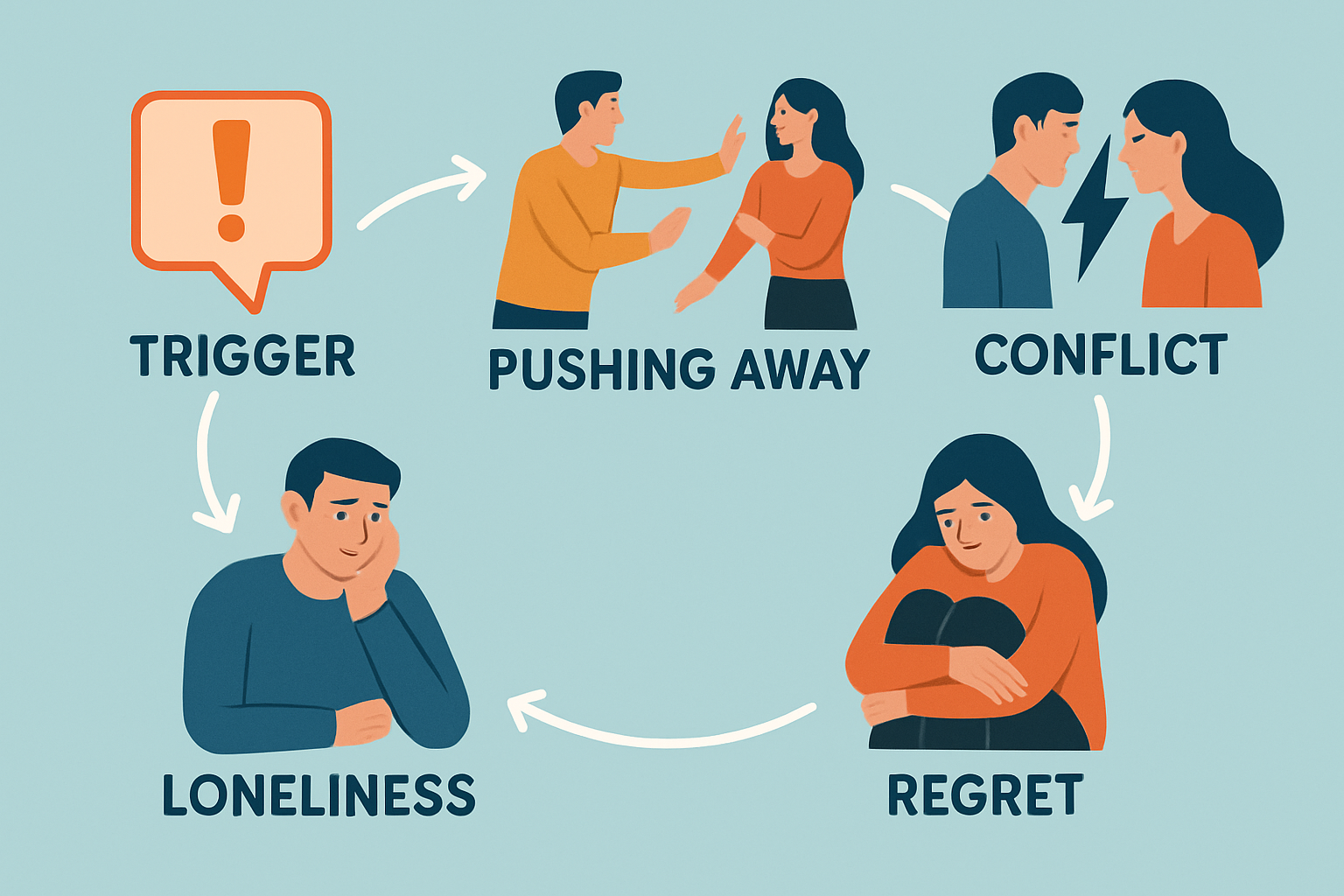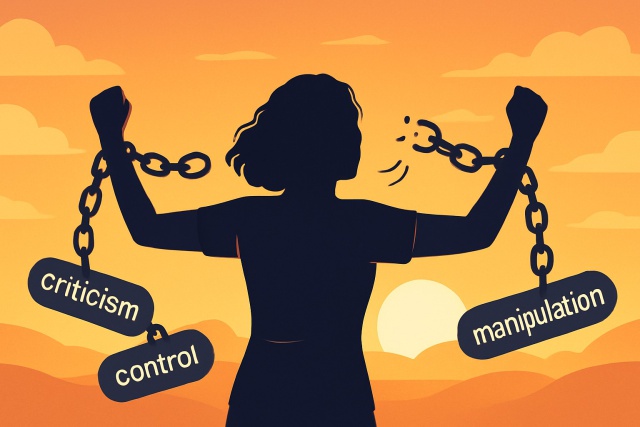
What Are Common Insecurities in a Relationship and How They Form
Insecurities impact relationships quietly but deeply. Learn about common types, how they develop, an...
This article looks at why we sometimes unintentionally throw a wrench in our relationships and explores how to build connections that are stronger and healthier — because everyone deserves that.
When trying to understand what is self-sabotaging relationships, it's helpful to recognize the familiar disguises these behaviors wear, like pushing partners away just when you need them most or doubting them for reasons you cannot quite put your finger on. They also include clinging to unhealthy patterns even though you know better. These patterns are common but people rarely catch themselves in the act of self-sabotage. This only adds fuel to the never-ending fire of pain and confusion.
Self-sabotaging relationships sneak up on us when we unknowingly act in ways that hurt our connections with others. More often than not these behaviors come from deep-seated fears or emotional scars rather than any conscious decision to cause harm.
Self-sabotage in relationships often springs from deep emotional and psychological roots like fear of getting too close or feeling unworthy of love. It can also come from carrying old wounds that haven’t healed yet. These inner beliefs trigger behaviors that might leave others scratching their heads. In reality, they act as emotional armor protecting someone from perceived threats to their fragile sense of safety.

Self-sabotaging behaviors do not just sneak into romantic relationships. They also appear unexpectedly in friendships, family dynamics and at work. In romantic partnerships this often shows up as avoiding vulnerability or causing conflict to maintain some emotional space. With friends it can look like pulling away when things start to get too close or dismissing offers of support as unwelcome. Within families those old patterns of blame and mistrust often resurface and reopen long-standing wounds that no one wants to face again.
| Relationship Type | Common Self-Sabotaging Behaviors | Impact | Typical Triggers |
|---|---|---|---|
| Romantic | Pushing a partner away, avoiding closeness, stirring up conflicts | Creating more emotional distance, sometimes even leading to breakups | Fear of being abandoned, past heartbreak |
| Platonic | Pulling back when support is needed, hiding vulnerabilities | Feeling lonely and isolated, risking the loss of friendships | Low self-worth, difficulties trusting others |
| Family | Blaming others, leaving conflicts unresolved, repeating harmful patterns | Strained family ties and emotional pain that lingers | Childhood wounds, unmet emotional needs |
| Professional | Holding back success, shying away from teamwork | Career growth hitting the brakes, feeling like the odd one out at work | Fear of failing, lack of confidence |
Self-sabotaging relationships come wrapped in myths that usually stir up blame or leave everyone scratching their heads. Individuals often assume self-sabotage is a deliberate act or worse that those who do it secretly want to be left alone.
“Self-sabotage in relationships usually isn’t something individuals sit down and plan out. More often than not, it creeps in quietly, almost under the radar, as a knee-jerk reaction to those deep-seated fears about whether we’re truly worthy and safe.” – Dr. Emily Stanton, Clinical Psychologist
Recognizing self-sabotage is the vital first step on the road to making a change. Taking an honest, no-holds-barred look at your own actions and feelings in relationships can often uncover some hidden patterns you hadn’t noticed before.
Breaking free from those pesky self-sabotaging habits takes a good dose of intention and a gentle touch with yourself. By gradually boosting your self-awareness and fine-tuning how you communicate while not hesitating to seek professional support, people can carve out healthier and more secure relationships.
Steady effort and a bit of the right support can make those small actions really snowball into meaningful, lasting change

When trying to understand what is self-sabotaging relationships, it's important to recognize that this behavior often runs deeper than we expect, tangled up with trauma or emotional wounds that aren't always easy to untangle by yourself. Seeking out professional counseling or therapy can provide a safe harbor along with expert guidance, paving the way for genuine healing and lasting change.

Insecurities impact relationships quietly but deeply. Learn about common types, how they develop, an...

Recognize common toxic relationship signs early to protect your emotional well-being and foster heal...

Intimacy disorder disrupts the ability to connect emotionally and physically, often causing confusio...

Narcissism comes in various forms, from overt arrogance to hidden insecurity. This guide breaks down...